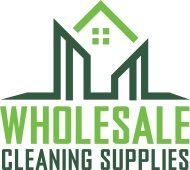General cleaning, Hand Hygiene for lowering COVID-19
Quality Cleaning Practices:
-
Clean and disinfect frequently touched objects and surfaces daily. This includes doorknobs, light switches, phones, computers, desks, and tables.
-
Use disinfectants that are effective against the virus that causes COVID-19. Check the label for a list of pathogens the product is effective against.
-
Wear gloves and a mask while cleaning and disinfecting. Change gloves frequently and wash hands after removing them.
-
Use disposable wipes or a cloth dampened with a disinfectant to clean surfaces. Avoid using spray bottles as they can spread droplets that may contain the virus.
-
Follow the instructions on the disinfectant label, including the recommended contact time, to ensure it is effective.
-
Clean visibly dirty surfaces before disinfecting. Dirt and grime can reduce the effectiveness of disinfectants.
-
Practice good ventilation in the space being cleaned by opening windows or using fans.
-
Store cleaning and disinfectant products safely, out of reach of children and away from food.
Hand Cleaning Practices:
-
Wash your hands frequently with soap and water for at least 20 seconds, especially after being in a public place, blowing your nose, coughing or sneezing.
-
Use hand sanitizers that contain at least 70% alcohol if soap and water are not available. Rub the sanitizer into your hands until they are dry.
-
Avoid touching your face, especially your eyes, nose, and mouth, with unwashed hands.
-
Teach children to wash their hands frequently and correctly.
-
Clean and disinfect frequently used items like keys, phone, and wallet.
-
Avoid close contact with people who are sick and stay home if you are feeling unwell.
-
Avoid sharing personal household items like towels, dishes, and bedding.
By following these quality cleaning and hand cleaning practices, you can help reduce the spread of COVID-19 and protect yourself and others. It is important to continue these practices even as the number of cases decreases, as the virus may still be present in the community. Additionally, it is essential to be vigilant and stay informed about the latest information and guidelines provided by health authorities. Regularly checking for updates and making adjustments to your cleaning and hand washing practices as necessary can ensure that you are doing everything possible to reduce your risk of exposure to the virus.
It is also important to practice good hygiene habits outside of your home and workplace. This includes wearing a mask, maintaining physical distance from others, and avoiding large gatherings. In addition, it is crucial to stay home if you are feeling unwell and to seek medical attention if you experience symptoms of COVID-19, such as fever, cough, or difficulty breathing.
Finally, it is essential to take care of your mental and emotional well-being during this time. The pandemic has caused significant stress and uncertainty, and it is important to find healthy ways to manage your emotions and cope with the changes and challenges that come with it. This may include practicing self-care, connecting with loved ones, and seeking support from mental health professionals if necessary.
In conclusion, taking a comprehensive approach to cleaning and hand washing practices, staying informed and vigilant, practicing good hygiene habits, and taking care of your well-being can help protect you and your loved ones from COVID-19.
